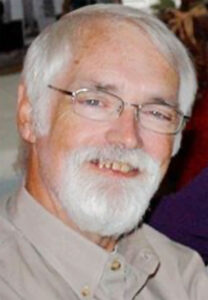Focal Passage: Acts 6:1-15
 Being in ministry and pastoring for over 40 years has given me many opportunities to experience the vast number of ways you can serve in the church. One such opportunity was a small congregation in Middle Tennessee where I was pastor. Being a small congregation created significant financial challenges. It also created some major campus maintenance issues as well. When our sanctuary heating and air conditioning system critically failed, we were forced to replace all the units. Because the units were so old, that meant we had to update our electrical systems to accommodate the new units and to bring it up to electrical codes. So, in order to meet the challenge, we trimmed the finances in every budget category. That meant custodial care, lawn maintenance, supplemental staff, secretarial help and maintenance. Everybody jumped in to help, even the pastor. I remember cutting grass, painting the preschool area, doing plumbing and electrical work, you name it, and we done it, until we had the current need met.
Being in ministry and pastoring for over 40 years has given me many opportunities to experience the vast number of ways you can serve in the church. One such opportunity was a small congregation in Middle Tennessee where I was pastor. Being a small congregation created significant financial challenges. It also created some major campus maintenance issues as well. When our sanctuary heating and air conditioning system critically failed, we were forced to replace all the units. Because the units were so old, that meant we had to update our electrical systems to accommodate the new units and to bring it up to electrical codes. So, in order to meet the challenge, we trimmed the finances in every budget category. That meant custodial care, lawn maintenance, supplemental staff, secretarial help and maintenance. Everybody jumped in to help, even the pastor. I remember cutting grass, painting the preschool area, doing plumbing and electrical work, you name it, and we done it, until we had the current need met.
We have a similar story in our study this week. The Church was growing very fast. This was creating some logistical problems and some social tensions within the congregation. Most of the Church at this juncture was comprised mostly of converted Jews. Later, the Gentiles would be added to their number. But not all the Jews were from Israel. Many were now being added from outside Israel. They were the Hellenist Jews. Even though they had everything in common, it seems that there was some favoritism being shone. The Hellenists Jews thought their widows were being overlooked in the daily distribution of food. Thus, with the rising tensions the Apostles called together the whole congregation.
They explained that they could not continue to teach and preach and handle the physical needs of the congregation at the same time. So, they suggested they choose seven men and they would relinquish that responsibility to them. This pleased the Church and they chose Stephen, Philip, Procorus, Nicanor, Timon, Parmenas and Nicolas. It is interesting to note that all of these names are Hellenists names. Maybe the Hebrews in the congregation wanted to remove all hints of preferential treatment and made sure by selecting these men. It worked, and the number of disciples grew rapidly in Jerusalem. The Scripture says even a large number of the priests were now accepting faith in Jesus.
Of these seven men, only two are mentioned beyond this point — Stephen and Philip. The other five are mentioned here in name only. We know nothing more about them. However, we do know they must have had other responsibilities and served God in other ways. In the latter part of chapter six, we see Stephen preaching and teaching in the Freedman’s Synagogue.
Some of their number took issue with what Stephen was saying and began to argue with him. But they could not refute what he was saying nor the testimony of the Holy Spirit. Because they could not defeat him with wisdom, they decided to do so with treachery.
They took a little truth, twisted it with lies, and mixed in deception to form a narrative that they hoped would destroy his testimony. But it didn’t. We will see as our study continues, that Stephen was a powerful preacher as much as he was a distinguished deacon. B&R

